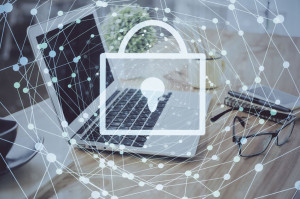Myths and Facts About Cybersecurity for Individuals
 Understanding cybersecurity is not just about knowing what to do when faced with a threat. It’s also about dispelling some of the most common myths that are floating around out there. These myths surrounding cybersecurity can create a false sense of security or inspire needless fear. As we navigate through our tech-connected world, it’s so important that we arm ourselves with the facts so we can protect our digital lives.
Understanding cybersecurity is not just about knowing what to do when faced with a threat. It’s also about dispelling some of the most common myths that are floating around out there. These myths surrounding cybersecurity can create a false sense of security or inspire needless fear. As we navigate through our tech-connected world, it’s so important that we arm ourselves with the facts so we can protect our digital lives.
In this blog, we will dissect and debunk some of the most common cybersecurity myths and share actionable advice that can help you stay safe whenever you’re online. Hopefully, it will help demystify the complex world of cybersecurity and make it more accessible, even if you don’t consider yourself to be a “tech-savvy” person.
Myths and Facts About Cybersecurity for Individuals
- Myth: Macs don’t get viruses.
- Fact: While they’re targeted less, Macs can get viruses.
Despite the common belief that Apple devices are practically invincible, they are not immune to malware or virus attacks. This misconception might lead Mac or Apple users to let their guard down, making them potential targets for cybercriminals. The truth is that every internet-connected device is at risk, which is why it’s so important to adopt proactive security measures on all of your platforms.
- Myth: If I have an antivirus installed, I’m safe.
- Fact: Antivirus software is crucial, but not foolproof.
Relying solely on antivirus software for protection is not going to be enough protection, unfortunately. Though antivirus is a vital component of cybersecurity, it cannot guarantee you complete safety from all cyber threats. Cybercriminals continually develop new tactics to evade detection. An effective cybersecurity strategy incorporates multiple layers of protection and constant vigilance.
- Myth: I have a good memory; I don’t need a password manager
- Fact: Password managers offer more than just convenience.
Many individuals resist using password managers because they think they can remember their passwords. They might even think a password manager exposes them to more risk. However, password managers actually play a critical role in maintaining security by facilitating the use of strong, unique passwords for different accounts and safely storing them, significantly reducing the risk of security breaches.
- Myth: Cybersecurity is only for tech-savvy people.
- Fact: Cybersecurity is everyone’s responsibility.
The idea that cybersecurity is just for the experts is a dangerous misconception. In reality, anyone with a digital presence can be targeted, making basic cybersecurity knowledge and practices essential for everyone to mitigate risks effectively.
- Myth: My information is safe on reputable sites.
- Fact: Even the most reputable websites are not immune to breaches.
The assumption that personal information is automatically safe when entrusted to well-known websites overlooks the reality that data breaches can, and do, happen anywhere. It is so important to be cautious and follow all cybersecurity best practices, even when you feel like you’re on a website that is trusted and safe. You just never know where cybercriminals are going to target next!
- Myth: I don’t have anything worth stealing.
- Fact: All personal information is valuable to cybercriminals.
Many underestimate the value of their personal data, believing they have nothing of interest to hackers. This misconception can lead to complacency. In reality, every piece of data, no matter how trivial it may seem, can be exploited for malicious purposes. Recognizing the value of one’s personal information is the first step in taking its protection seriously!
- Myth: Cybersecurity is too complex and expensive.
- Fact: Many effective security measures are straightforward and affordable.
It’s a common belief that cybersecurity is out of reach for the average person due to its complexity and high cost. However, many effective cybersecurity practices are neither complicated or expensive. Simple habits such as keeping software up to date, using strong passwords, and being cautious about email links can significantly strengthen one’s digital security without any financial investment.
- Myth: Emails from familiar sources are always safe.
- Fact: Email addresses can be spoofed, making vigilance essential.
The assumption that emails from people you know in real life are inherently safe can cause you to let down your guard. Unfortunately, cybercriminals will often create fake (otherwise known as “spoof”) email addresses as part of a phishing attempt because they know it’s more likely that you’ll open the email and click the link(s) inside. This is why it’s important to stay cautious, especially when an email requests sensitive information or wants you to take an action that feels out of the ordinary.
Dispelling myths and embracing the facts about cybersecurity is so critical in today’s digital age. By adopting a proactive and informed approach to digital defense, you can greatly enhance your online security and stay vigilant against cyber threats!






